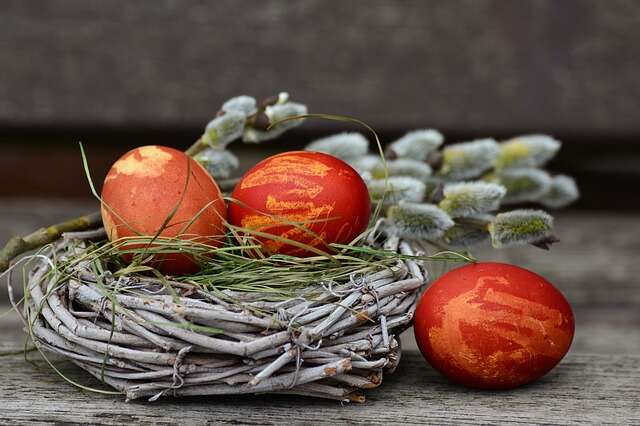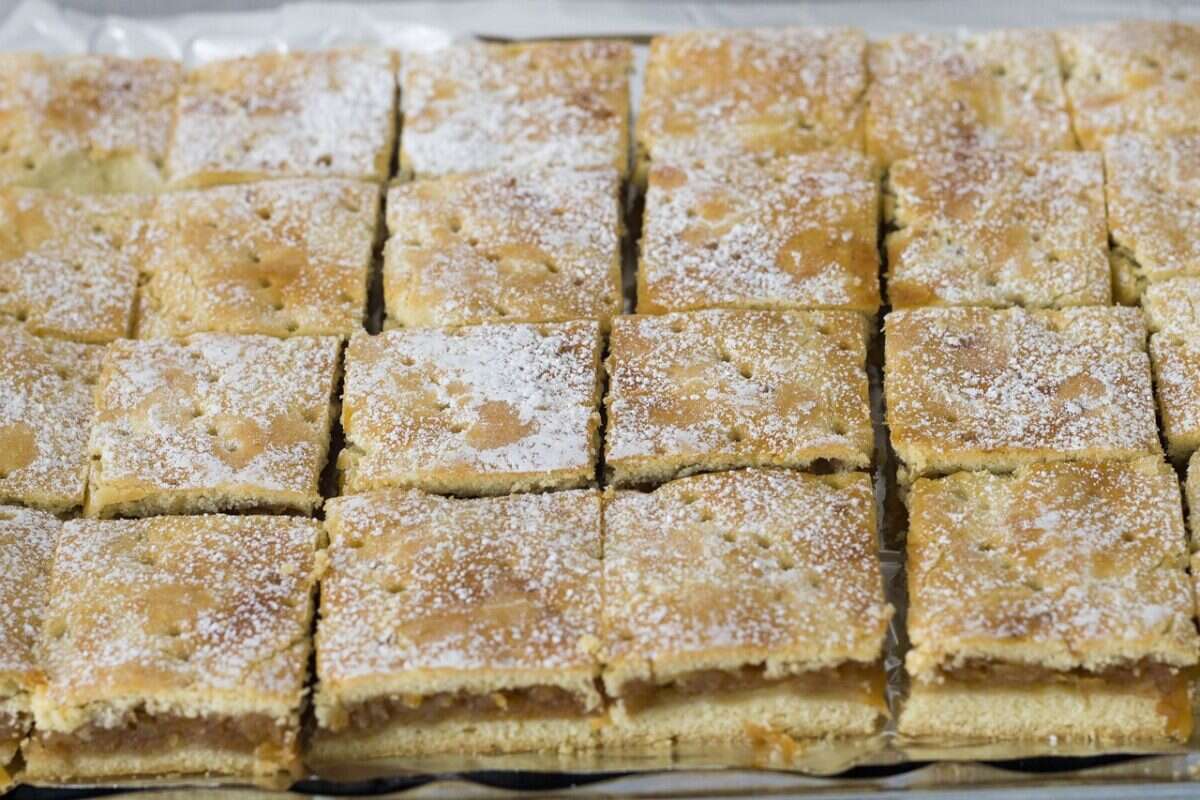Easter, Resurrection Day, Easter, Easter - Easter is a moving holiday. How was Easter celebrated in the Boljevac county? This holiday was more commonly known as Velik-dan or Voskreseniye rather than Easter or Easter. After Christmas, Easter comes among the biggest and most loved holidays. And Easter, like Christmas, is celebrated for three days. The customs and celebration of Easter in the Boljevac county, at the beginning of the 20th century, are discussed in the book by Savati M. Grbić: Serbian folk dishes and drinks from the Boljevac county, 1925.
How was Easter celebrated?
On Easter, early in the morning, as soon as the housewife gets up, she immediately puts the copper pot with water on the fire. Mix in the water: sedum, basil, selvin and nettle. When the water warms up a little, he bathes all the children in turn and dresses them. After that, he looks after other household chores and prepares lunch.
Na Easter the people greet each other with: "Christ is Easter!", to which the answer is: "It's Easter indeed!"
Where there is a church in places, the host goes to church that day. When he returns from church, they have lunch. Before getting married, everyone should taste some wine. They drink wine to be as red as wine all year round. After the wine, they taste a bit of dogwood. They take dogwood to be as healthy as dogwood. After that, they are fed with cheese, and after the cheese they take red eggs, and they taste a little bit of them as well. After that, the other dishes are eaten. Peasants do not place a lamb before St. George's Day. That's why they don't slaughter lambs for this day, but pigs, turkeys, geese, chickens, etc. The shepherds, who are with the cattle, do not mow on this day, but eat lentils, so that their cattle suffer better. On this day, the shepherds do not even take an egg in their hands, so that their livestock would not suffer from the gotunar.
If a stranger comes to the house, the hostess gives him an egg when leaving, saying: "Christ is Easter!" and this one, receiving the egg, answers her, "It's Easter indeed!"
From Easter to Savior's Day, this song is always sung about the glories: "Lord have mercy, Lord have mercy, Lord have mercy! Ristos rose from the dead, death to me, death to me, mend the two graves, a living gift!".
On all three days of Easter, after lunch, boys, girls and young women gather for a dance, which lasts until dark.
From Easter to Savior's Day, the peasants do not work on any Thursday: they do not plow, dig, drive oxen, etc. They celebrate all those Thursdays, so that the city does not beat the field. The people call those Thursdays big, and there are seven of them.
At Easter, it is customary to leave two or three colorful eggs and keep them. One of them is used on St. George's Day, when they stop to bathe the children; the other they save to put in the hemp seed, when they take it to sow, so that the hemp will produce better and that it will not be beaten by the hail. In addition, two or three eggs are kept, so that they can be found if something is accidentally stolen from the house. When something is stolen from the house, they are afraid of a red egg, in order to find the stolen thing. That's why they still keep the red egg, in order to protect the house from various damages and diseases.
On the third day of Easter in the village of Sumrakovec, the girls go to the dance and decide which girls will get married that year. That game is called Chubra Mara.
After lunch, boys and girls bathe on the playground. As soon as several of them are redeemed, the round starts immediately. One of the boys plays the pipe or the bagpipes, and the other boys and girls dance. After playing for a long time, the girls are singled out, who are counted as matchmakers, that is, those who do not have older brothers to marry or older sisters to marry, so they make a separate circle and grab each other's belts. The wheel moves slowly and to the right. Several prominent young men go around the circle and wait for which of the girls they will push into the circle. They usually agree in advance which girls will go inside. Girls are usually guarded, so that they are not pushed into the circle, because then they have to get married that year.
When they have already pushed the two girls into the circle, they stand facing each other with bowed heads and scarves over their mouths. The wheel moves slowly to the right in equal time. As soon as the round starts, the singers, usually four girls, previously designated for this purpose, start singing aloud two by two:
Čubra Maro, have you heard Maro, ¹)
Chubra Maro, may your father-in-law come,
Chubra Maro, and cake for you,
Chubra Maro, on a whale cake,
Čubra Maro, the Turks killed him,
Chubra Maro, so they executed him,
Chubra Maro, fall and pity him,
Chubra Maro, don't be afraid of me, Maro,
Chubra Maro, your lie will be,
Chubra Maro, kiss whoever you want,
Čubra Maro, or me or to me.
¹) Each line is repeated twice. First, the first two singers sing each line, then the other two, and it goes on like that until the whole song is finished.
When the singers sing: "Chubra Maro, fall and pity him", then the two girls in the car hug each other and decide which of the girls they will kiss. As soon as the singers sing: "Chubra Maro, kiss whoever you want, Chubra Maro, or me or to me", the circle disperses, and those two girls chase after the other girls and kiss whoever they catch. They look to kiss those girls who have arrived for marriage. Kissed girls, it is thought, get married in the same year. This completes the Chubra Mara and then a regular circuit begins, which lasts until dark.
Old women believe that if there was no playing of Chubra Mara, it would not be good for either boys or girls.
Source: Serbian national dishes and drinks from the Boljevac area, 1925, Savatije Grbić
Read more:
The best recipes on the Android app for your mobile phone or tablet!
The Recipes and Kuvar online portal is ranked among the TOP 50 websites in Serbia!
If you are interested in all of ours recipes, click the link: RECIPES. Collections of the best recipes of our associates can be found in the cook section, if you want to read more, click on the link: COOK. If you want to see our front page, click on the link: RECIPES AND COOK ONLINE homepage.
Don't miss a recipe - Recipes and cookbook online on Facebook. Stay tuned, follow the Recipes and Cookbook twitter notifications!







